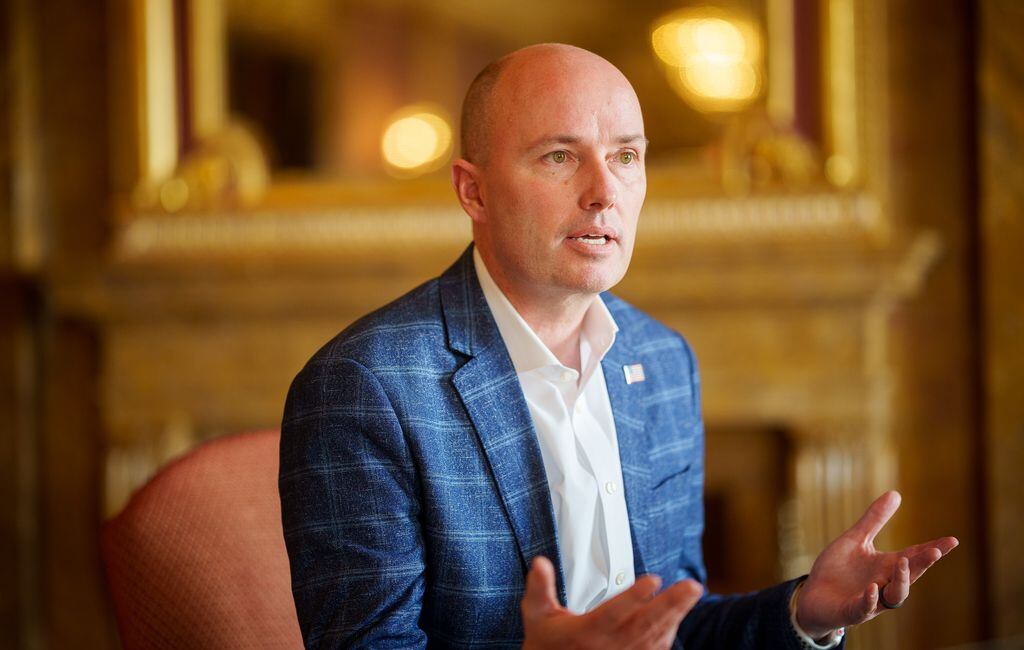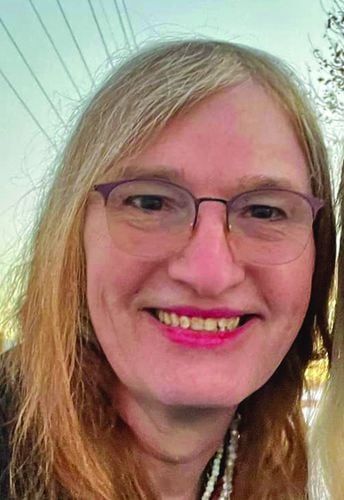https://www.sltrib.com/opinion/commentary/2023/05/11/commentary-governor-cox-is-wrong/
Surgery for youth under 18 is uncommon and used divisively against our community.

(Trent Nelson | The Salt Lake Tribune) Gov. Spencer Cox talks in Salt Lake City on the last day of the legislative session, Friday, March 3, 2023.
By Sophia Hawes-Tingey | May 11, 2023, 6:09 a.m. | Updated: 8:37 a.m.
The growing bevy of laws targeting trans youth not only is harmful for their well-being and emotional development, but also is rooted in scientific reasoning not reflective of current medical consensus.
When Utah Gov. Spencer Cox claimed there is not enough evidence for transgender health care treatment, it felt like a misguided and transphobic sting. Local medical advocates and the latest version of the World Professional Association for Transgender Health (WPATH) standards of care provide a plethora of evidence contradicting this claim. This data is easily available for internet savvy searchers. Additionally, a significant number of trans people have a nonvisible disorder of sexual development that is frequently overlooked in the statewide conversation.
Often these disorders are discovered later, dismissed, or subject to (sometimes unnecessary) corrective surgery. Many such conditions exist. For example, Persistent Mullerian Duct Syndrome (PMDS) is the medical term for mullerian ducts that fail to close in phenotypic males, potentially leaving endometrial tissue, underdeveloped gonads, and more. Not knowing I potentially had this condition, I had an operation for a distended bladder at the age of nine, during which my urethra was also repaired. Military doctors regularly noted that I was unilaterally cryptorchid, and would suggest surgery, stating that I was “close enough” to normal. My testosterone counts were consistently below normal. In my early forties, after already coming to terms with my gender identity, I was diagnosed with hypogonadic hypertrophism (underdeveloped gonads). I was never officially diagnosed as intersex, but other evidence including my family history, an internet research, and medical photos finally convinced me that I had inherited PMDS.
Not just phenotypic males are affected. Female to male (FTM) trans people often have high testosterone counts from overly productive adrenal glands. This also can have an impact on brain development, and is not overtly visible.
In extreme situations, PMDS, adrenal hyperplasia, and other conditions can lead to body dysmorphia or socially evasive behavior. Clearly these are critical health issues that need to be addressed by inclusive and compassionate medicine.
Conversations about trans youth gender affirming care often turn to surgery; however, surgery is uncommon for youth under 18 and used divisively against our community. Being able to blend in with one’s emotional peers is difficult when the body develops in ways that make a person feel like an outsider. Lasting and permanent changes from adolescence further divide trans people from their emotional peers and negatively impact their entire lives, including social relationships, mental health and education.
Another oft discussed topic of concern in this conversation is puberty blockers, which have been shown to have little risk and no significant long-term harm. Puberty blockers can be an important tool in buying time to determine the best outcome that works for the youth. Properly trained medical teams can determine if there is a clear need to start hormone therapy, but no sooner than at 16 years of age and after two years on blockers. These parameters for treatment demonstrate the careful steps medical teams take to ensure the well-being and safety of trans youth. Furthermore, overwhelming evidence points out that regret is not likely. With appropriate care, well over 90% of people who transition don’t regret it, and the percentage is much higher when following WPATH guidelines. This is life-saving treatment when considering 41% of trans youth attempt suicide when denied an opportunity to fully embrace themselves.
As we discuss trans youth health care, it is crucial that leadership and policy makers are following the science and have compassion for ensuring our trans youth thrive and become vibrant trans adults. I only wish now that Gov. Cox will heed my perspective and reconsider his unbacked opinions on trans youth gender-affirming care.

Sophia Hawes-Tingey
Sophia Hawes-Tingey is a founding member and facilitator for the Utah Coalition to Protect Transgender Rights, chair of the Transgender Inclusion Project, Vice Chair of the Utah Stonewall Dems, and a board member of the ACLU of Utah. As a trans-woman, Sophia has advocated for access to gender-affirming care and equal protection under the law since 2011.